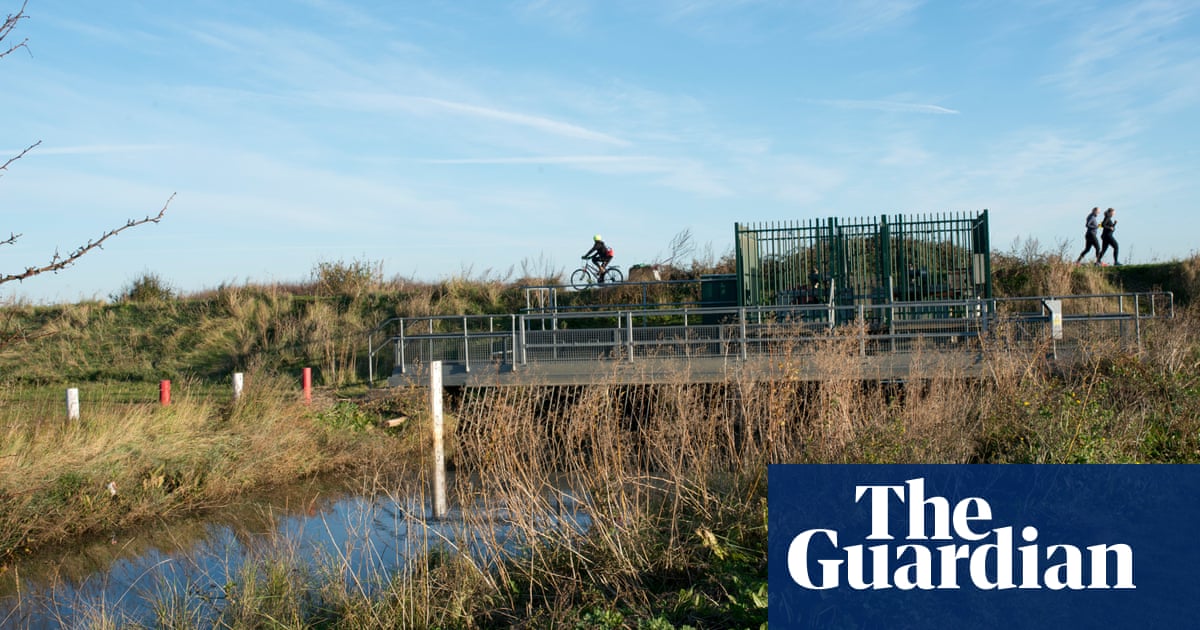
Some of the world’s biggest businesses are failing to live up toclaims they will hit net-zero emissions targets, according to research that suggests they will cut their carbon emissions by only 40% rather than the 100% cuts claimed.
Household names such as Amazon, Ikea, Nestlé and Unilever are among the companies named as showing little substance to their claims that they will cut emissions drastically.
Thomas Day of NewClimate Institute, who compiled the report, said that taken in aggregate, the efforts of the 25 companies studied would make little impact. “It is not clear these reductions take us beyond business as usual,” he said. “We were very disappointed and surprised at how much room for improvement there was [among the companies studied]. Companies need to be much more transparent about these goals.”
Near-term targets were of particular concern, he added. The report showed that the companies surveyed would only cut their emissions by about 23% on average by 2030, falling far short of the figure of nearly halving in the next decade that scientists say is needed to limit global heating to 1.5C. “It’s short-term action that’s the most important thing, in the climate crisis,” he said.
Many are relying on carbon offsetting for a large portion of their projected cuts. Carbon offsetting is the controversial practice of paying for projects that reduce carbon dioxide – usually by maintaining forests or growing new trees – to compensate for greenhouse gases emitted elsewhere.
Many of the companies studied have made much of their public claims to environmental sustainability. “Some companies I had expected more from, given their very positive perception, such as Ikea, Unilever and Nestlé,” said Day.
The Corporate Climate Responsibility Monitor, by NewClimate Institute and Carbon Market Watch, scored companies on criteria including their targets, how much offsetting they planned to use and the reliability of those offsets, as well as progress on reducing their own emissions, and how transparent they were in their target-setting and corporate reporting.
None of the 25 companies rated were judged to achieve a high standard according to these benchmarks. Among those showing “low integrity” were Amazon and Ikea, while the 11 companies that ranked worst in the study, showing “very low integrity”, included E.ON and Nestlé.
The over-use of offsetting was one of the main reasons most companies were marked down, said Day. Offsetting is increasingly popular among companies seeking to burnish their green credentials, and is set to become even more so through a new standards body.
Critics say that many offsetting projects have been found to be of doubtful value, and some have been fraudulent. Forestry also makes a poor substitute for immediate emissions cuts as carbon emitted into the atmosphere today begins to heat the atmosphere now and continues to do so for at least a century, while trees take decades to grow and store carbon absorbed from the air.
Proponents counter that with deforestation rampant across the world, preserving existing forests is one of the most important ways of tackling the climate crisis.
Day said using offsetting tended to obscure whether companies were making genuine progress on cutting their own emissions, or hiding behind offsets to achieve a notional net zero. “It’s better practice not to offset – it’s more transparent and constructive,” he said. “Companies should not be claiming they are net zero by 2030 unless they are reducing their emissions by 90% by then.”
He was also concerned at the apparent poor quality of some of the offsetting projects that companies were using. “If they insist on offsetting, at least it should be with carbon credits that have more integrity,” he said.
An Amazon spokesperson said the company had a goal of reaching net-zero carbon by 2040: “We set these ambitious targets because we know that climate change is a serious problem, and action is needed now more than ever. Amazon is on a path to powering our operations with 100% renewable energy by 2025, five years ahead of our original target.”
An E.ON spokesperson said: “In our view, [the report] is not only methodologically incorrect, but its results are misleading. E.ON’s carbon footprint is based on the principles of the globally applicable greenhouse gas accounting standard. E.ON was again included in the A List by CDP [the Carbon Disclosure Project] for its climate reporting in 2021.”
A spokesperson for Ikea said: “While Ikea has achieved much already, such as breaking the link between decreasing our absolute emissions while increasing business growth, we have plans in place to address our remaining complex challenges, such as the climate footprint of the materials used in the Ikea range.”
Benjamin Ware, the global head of climate delivery and sustainable sourcing at Nestlé, said: “We welcome scrutiny of our actions and commitments on climate change. However, the report lacks understanding of our approach and contains significant inaccuracies. [Our] climate roadmap has been validated by the Science-Based Targets Initiative [a corporate sustainability body]. The work that went into it is rigorous and extensive.”
A spokesperson for Unilever said: “While we share different perspectives on some elements of this report, we welcome external analysis of our progress and have begun a productive dialogue with the NewClimate Institute to see how we can meaningfully evolve our approach.”












